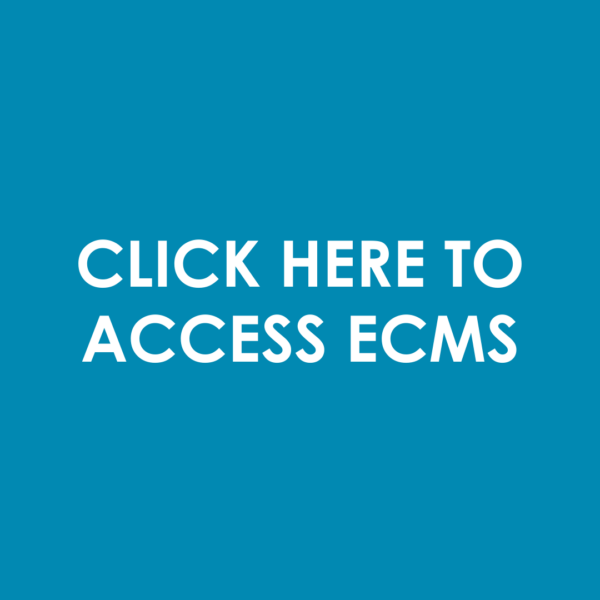Emergencies & Security
Learn more about dealing with emergencies, security and water system security topics.
Emergency Contact Management System (ECMS)
Access ECMS and additional resources
About
In an effort to mitigate challenges and inefficiencies during emergencies (e.g. natural disasters), the NJDEP’s Division of Water Supply and Geoscience and the Division of Water Quality have developed the Emergency Contact Management System (ECMS).
Through this system, entities regulated by the water supply and New Jersey Pollutant Discharge Elimination System (NJPDES) programs are able to verify and update 3 different types of emergency contacts for their facility (i.e. primary, secondary, and security); ensuring that the Department has the most up-to-date contact information in the event of an emergency.
On a semi-annual basis, regulated entities will be reminded, via email, to re-verify and/or update the emergency contacts for their facility.
ECMS User Resources
ECMS Account Setup and Administration Instructions (January 2021)
ECMS Training Video (January 2023)
For technical support regarding the ECMS system, please complete the Help Request Form at https://www.njportal.com/DEP/ECMS/Home/NicContact
Click on the links below for more information:
- Any incident impacting, or having the potential to impact, water quality, or causing a loss of pressure:
- Must be reported within 6 hours to the NJDEP hotline at 1-877-WARN DEP (1-877-927-6337). (N.J.A.C. 7:10-2.4(b))
- A follow up call should be made to the Bureau of Water System Engineering during business hours at 609-292-2957.
- Submit the appropriate supporting form electronically to the Division’s emergency email address (wsemergency@dep.nj.gov) as soon as possible.
- Forms
- Water Supply Emergency Incident Report: (PDF Document | Word Document) Use for localized incidents involving a loss of positive pressure and/or an adverse effect on the quality of delivered water.
- Water Supply Damage Assessment Report: (PDF Document | Word Document) Use for reporting emergency incidents involving extensive damage to a critical facility and/or damage to a large portion of the system’s infrastructure/facilities (i.e. hurricane damage).
- Best Management Practices During Emergency Conditions (revised April 2021)
- Fact Sheet for Requesting DEP Guidance on Public Water System Monitoring during an Emergency (May 2020)
- Request for DEP Guidance on Public Water System Monitoring due to an Emergency (May 2020)
- NJDEP Drinking Water Flushing Guidance for Restoring Water Quality in Buildings with Low or No Use (May 2020)
- Advisories:
- Boil Water Advisory: Advises customers to boil the water before drinking, cooking, and other potable water uses due to the potential for the water supply to be contaminated with disease-causing microorganisms.
- Do Not Drink Advisory: Advises customers not to use the water supply for potable purposes and only advocates its use for sanitary and fire-fighting needs.
- Do Not Use Advisory: Advises customers not to use the water supply for any purpose, including sanitary and fire-fighting needs.
- Guidance & Templates
- EPA Public Notification Guidance:
- Public Notification Templates
- EPA Drinking Water Advisory Communication Toolbox – provides information on how to plan for, develop, implement, and evaluate drinking water advisories.
- Precautionary Measures For Water Systems Before, During, And After A Hurricane
Includes a preparedness checklist and post event actions for water systems. - Radio Stations that broadcast Emergency Public Service Announcements https://www.nj.gov/emergency/radiosta.html
-
- Emergency Response Plan Guidance revised December 2020
- Emergency Response Plan Template revised March 2021
- Asset Management Guidance and Best Practices
- Auxiliary Power Guidance
- Flood Protection Guidance
- Interconnection Study – Executive Summary
- Interconnection Study – Full Report
- County/Local:
- State:
- Federal:
- Other NJDEP Resources
Effective February 2017, the NJ Water Agency Response Network (NJWARN) has been dissolved.
For local emergency incidents, water systems are encouraged to establish and strengthen mutual aid agreements with your neighboring systems or systems of similar size to support potential resource needs.
For large scale events, the local, county, State Office of Emergency Management (OEM) structure is the established pathway for resource needs. The OEM process allows for water and wastewater system requests for resources to be elevated from local level to the State OEM. This process is well supported.
Any resource needs outside of State availability can be elevated by the State OEM to the Emergency Management Assistance Compact (EMAC is the nation’s state to state mutual aid system) and/or the Federal Emergency Management Agency (FEMA), as needed.
It is important that you familiarize yourself with the local and county OEM coordinators and understand their expectations and procedures for processing your resource needs.
A listing of OEM county coordinators is available at: http://ready.nj.gov/about-us/county-coordinators.shtml
